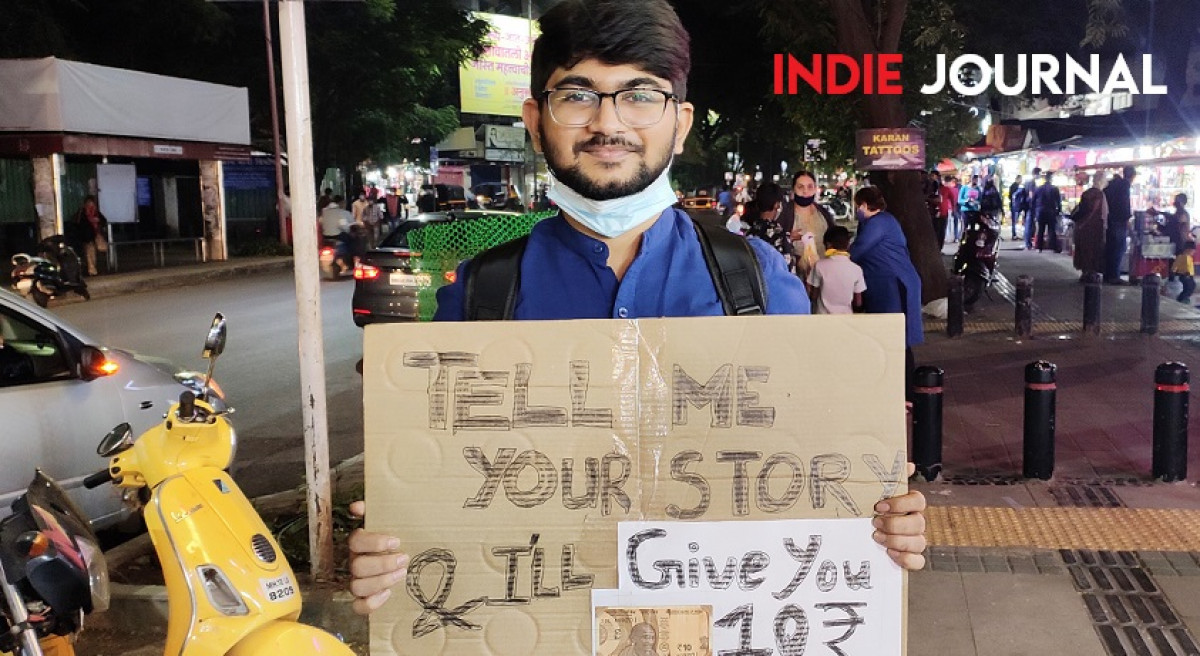India
20km on feet for basic healthcare: Story of Bhamragarh’s pregnant women
For pregnant women in Gadchiroli’s remotest talukas, reaching hospitals for birth is an ordeal in itself.

Last year, the stories of the ordeals faced by two pregnant women in Bhamragarh taluka of Maharashtra’s Gadchiroli district, as they tried to reach the hospital to deliver their babies, shook the state. Roshni Paduli was home when her water broke, and the labour pains had become unbearable. The nearest health centre was 23kms away from her village Turemarka. With no proper roads and transport facilities, the only alternative was to walk to the health centre, which included crossing sewers, rivers, forest areas and uneven terrain. Almost four hours and 14kms later, Roshni reached the primary health centre in Laheri from where she was taken to the Bhamragarh hospital in a vehicle. She gave birth to her baby on the same day.
Three days later, Roshni had to make the same journey back - only this time with her baby. However, around six months after Roshni's ordeal, the situation has not really changed for the women in her village. Bodhi Ramteke, a social worker active in the Bhamragarh area, had visited Roshni and other women, and documented their stories earlier in October 2020. According to his team’s work, the villages around Bhamragarh taluka have been struggling with the basic health facilities and infrastructure for a long time now.
Another woman, a four-month pregnant Jaya, was working in the fields all day. On returning home, she fell unconscious, causing her family to panic. There was no bridge to cross the river in the village, and owing to heavy rains, the water level had increased significantly. Lack of proper roads implied that the only way to get medical help was to cross the river. Jaya was laid down on a cot and was carried across the overflowing river by her family members. Upon reaching the primary health centre in Laheri, Jaya’s family found no doctor available at the moment. They soon took her to the Bhamragarh hospital around eight-nine kms away in an ambulance which didn’t have any doctor or nurses to provide primary medical help on the way. Upon reaching the Bhamragarh hospital, Jaya was declared dead on arrival.
To this day, the medical authorities have not provided a post mortem report for Jaya’s death, depriving her family of any closure.
For any medical emergency, the villagers have to travel a distance of more than 20kms on foot to reach the nearest primary health centre at Laheri, or the Bhamragarh hospital, which is even further. The pregnant women, especially, have to walk on foot for any emergencies like pregnancy pains, delivery, or routine gynaecology check-ups.
The distance from Turemarka to Laheri is 23kms, with no adequate roads for even a motorbike to pass safely. The path, laden with pebbles and rocks, also required the pregnant woman to cross two mountains before she reached the safety of a hospital.
Deepak Chatap of Path Foundation and his colleagues have escalated this issue with the State Human Rights Commission (SHRC), as the right to health and right to life are the fundamental rights of any citizen. The citizens here are knowingly being deprived of them, Chatap says. The absence of proper infrastructure and transport facilities further emphasises the lack of health services.
“This is a usual practice in the area for pregnant women - walking 25-30kms to reach the hospital, arranging cots to transport them when their water breaks, and risking the lives of their babies. We had submitted the records to the SHRC which showed how many pregnant women died due to lack of facilities. There needs to be a change and it needs to be quick,” Chatap adds.
Since the Bhamragarh area is largely dominated by Naxals, the state authorities have delayed building health centres for a long time now. They have also cited lack of funds for not building health centres in the surrounding villages. “Recently, a mining project was approved by the State Government here. They even deployed police personnel near the mining sites. If Naxals and funding were a problem, then how come the mining project was sanctioned and given full security?” questions Ramteke.
The nearest primary health centre at Laheri is managed by Asha workers and government doctors who visit regularly. However, they don’t have any ambulances or vehicles to travel to surrounding villages and check up on the patients. Asha workers too are reluctant to visit the pregnant women fearing Naxal presence, they instead request the women to travel to the primary health centres. To this, Ramteke says, “We understand that they have limitations. It isn’t their fault entirely either, but nor is it ours. All we want are basic facilities so that raising a family doesn’t include risking the lives of our women and their babies, the villagers say.”
Anytime a pregnant woman needs immediate medical assistance, the villagers immediately gather and set out to carry her to the Laheri primary health centre, which takes about three-four hours. But since there is no proper network coverage in the area, the villagers can’t call the health centre to check if the doctors and nurses are available or not. They hope that medical aid and staff is available.
In his initial report, Gadchiroli District Collector Deepak Singla had stated that due to rains, Roshni Padoli was not provided with an ambulance. However, Ramteke has stated in his account that irrespective of rains, no ambulance can reach the villages. Instead, it’s the villagers who build a not-so-safe wooden bridge annually for which they don’t receive any compensation from the state either.
The matter has been escalated to the court, where, after Ramteke and Chatap submitted a detailed report about the challenges faced by pregnant women, the court had asked the district collector to submit a response too. According to the updated report, Singla has admitted to the shortcomings of the authorities in not providing basic facilities to the women. Singla has also assured that his administration will take appropriate steps to build the health and transport infrastructure in the villages so that other pregnant women don’t have to go through what Roshni and Jaya did. The next court hearing will be held on March 21 where the fate of the pregnant women in these remote villages will be decided.





